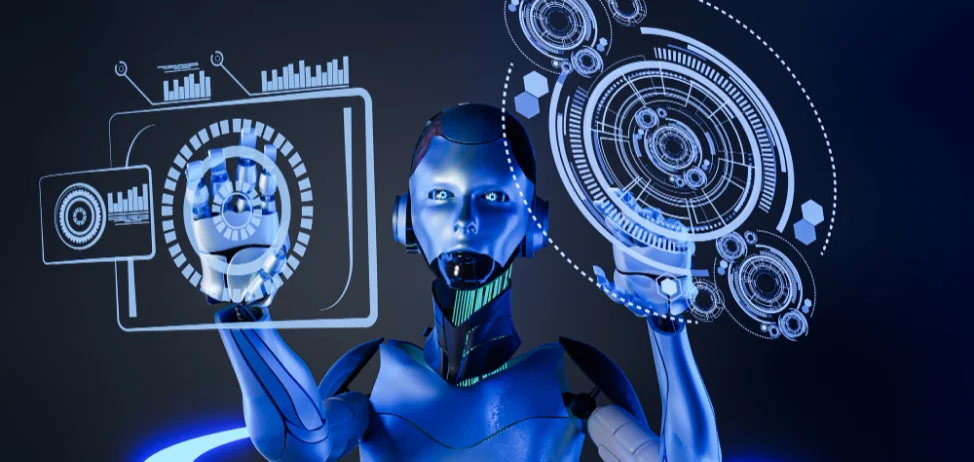Technology
The Future of AI

Artificial Intelligence (AI) has rapidly progressed from a futuristic concept to a transformative force across industries. As we stand on the cusp of a new era, it is crucial to explore the future of AI and understand the profound impact it will have on our society, economy, and everyday lives. In this blog post, we will delve into the exciting advancements and potential applications of AI, as well as the challenges and ethical considerations that lie ahead.
Healthcare Revolution
AI has already permeated various aspects of our daily lives, from voice assistants in our smartphones to personalized recommendations on streaming platforms. However, the future holds even greater possibilities. We can anticipate AI-powered virtual assistants becoming even more intuitive, proactive, and seamlessly integrated into our routines. Smart homes will leverage AI to enhance security, energy efficiency, and overall convenience.
Transforming Industries
AI’s impact on industries such as finance, manufacturing, and transportation will be profound. In finance, AI-powered algorithms will revolutionize fraud detection, risk assessment, and trading strategies. Manufacturing will witness the rise of smart factories with autonomous robots and AI-driven quality control systems. Transportation will be reshaped with self-driving vehicles, optimized traffic management, and predictive maintenance.
Enhanced Customer Experiences
AI will continue to revolutionize customer experiences across sectors. Natural Language Processing (NLP) advancements will enable chatbots and virtual assistants to provide more human-like interactions. AI-powered recommendation systems will become increasingly accurate, leading to highly personalized shopping experiences and content curation. Augmented Reality (AR) and Virtual Reality (VR) powered by AI will create immersive experiences in various domains, including entertainment and education.
Ethical Considerations
As AI becomes more pervasive, it raises ethical concerns that need careful attention. The potential for bias in AI algorithms, privacy concerns, and the impact on employment are among the key considerations. It is crucial to develop ethical frameworks, regulations, and transparency in AI development to ensure fairness, accountability, and protection of user data.
Collaboration and AI Education
To harness the full potential of AI, collaboration among governments, academia, and industry is paramount. The future will witness interdisciplinary collaborations to tackle complex challenges, such as climate change and healthcare accessibility, using AI solutions. Additionally, investing in AI education and upskilling programs will empower individuals to thrive in the AI-driven workforce of the future.
"Artificial intelligence is one of the most profound things we're working on as humanity. It's more profound than fire or electricity."

The Path Forward
The future of AI holds endless possibilities, and it is our collective responsibility to shape it responsibly. Encouraging diversity and inclusivity in AI development teams, fostering interdisciplinary research, and engaging in open dialogue are vital. Governments and organizations must collaborate to establish regulations that balance innovation with ethical considerations, ensuring AI benefits society as a whole.
Conclusion
The future of AI is a thrilling frontier, filled with remarkable potential to enhance our lives, industries, and societal progress. From healthcare advancements to transformative customer experiences and ethical considerations, AI’s impact will be significant. Embracing the opportunities while addressing the challenges will pave the way for a future where AI serves as a powerful tool, augmenting human capabilities and driving innovation to unprecedented heights. Let us embark on this journey together, as we unlock the boundless potential of AI. As we anticipate the future, it is essential for individuals, organizations, and policymakers to stay informed, adapt, and actively participate in shaping the trajectory of AI